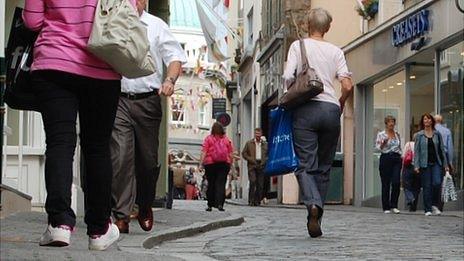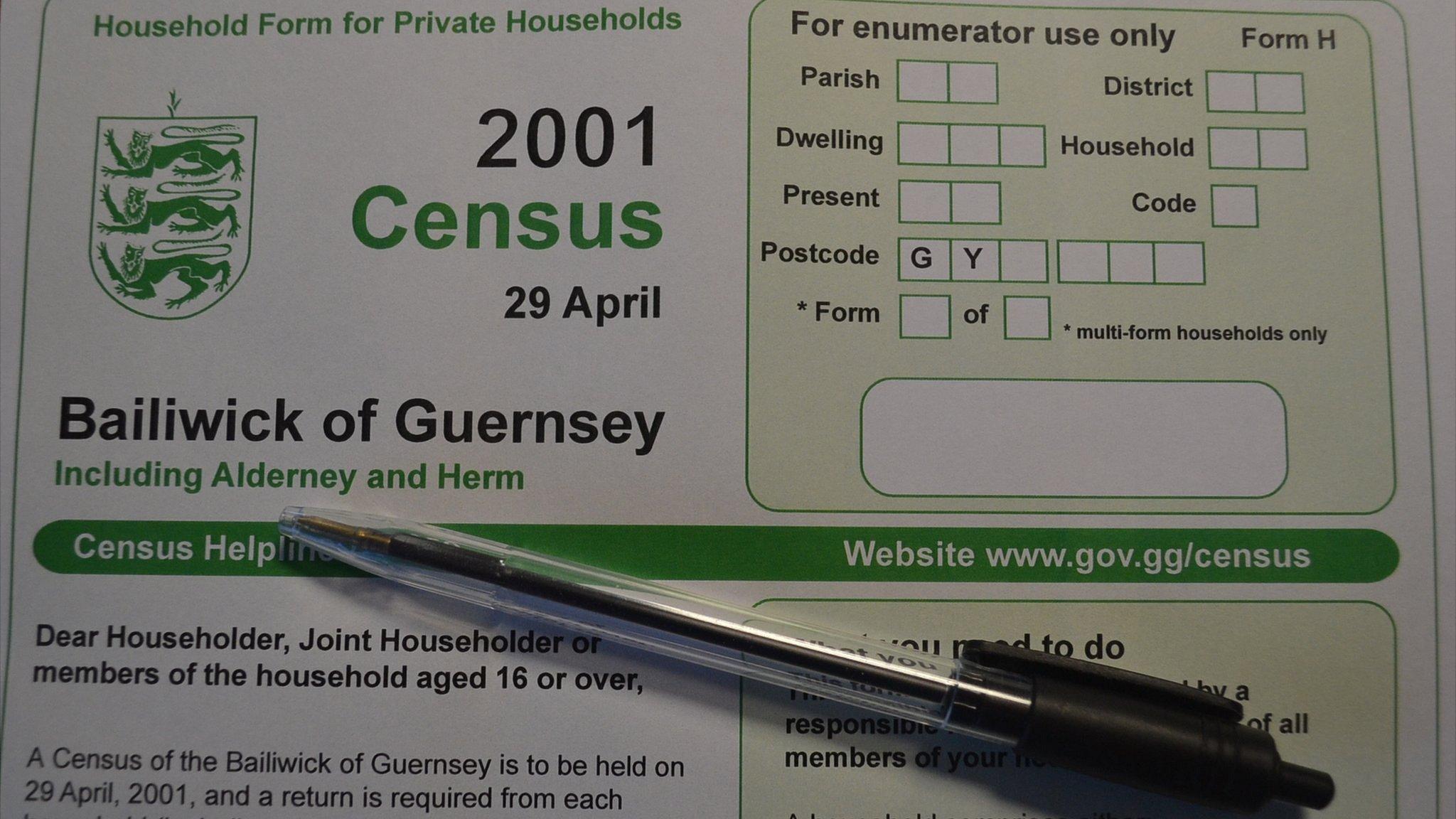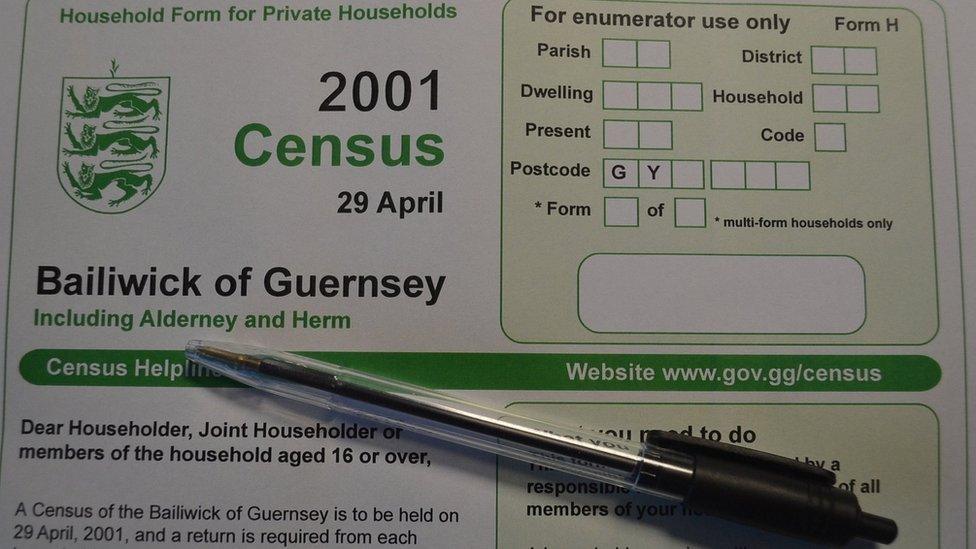Guernsey population fall continues
- Published
Guernsey's population decline is continuing, according to the island's first electronic census report.
At the end of March 2014 the population was 62,711, which was 96 down on 2013 when it fell by more than 300.
There was a natural increase of 101 people and overall migration was negative by 197.
Chief Minister Jonathan Le Tocq said the two-year trend was a worry and said: "Depopulation is far more of a concern than overpopulation."
He said: "Information from a traditional census is, in effect, out of date almost as soon as it is published and would not then be updated for five or 10 years.
"We now have more facts at our fingertips so this will prove invaluable when we are faced with making decisions which impact on our lives as a community."

Electronic census statistics
The population is projected to peak between 65,500 and 69,000 people between 2030 and 2050
The working population of 41,047 is 65.5% of the overall population
The 2014 dependency ratio was 0.53, which means that for every 100 people of working age (between 16 and 64) there were 53 people of dependent age.
The dependency ratio is projected to increase to between 0.76 and 0.80 by 2040
At least 50% (or 31,000) of the population was born in Guernsey; 20%, (14,000) are from the UK; 1.9% (1,100) from Portugal and 1.5% (1,000) from Latvia
29.1% of the population live in St Peter Port, which has more than double the population of any other parish
The majority of people (at least 64% or 40,000) lived in properties they own

Since 1831 a census was held every 10 years and then every five years from 1971, with the last held in 2001.
In 2005 the States decided to replace the paper census with an electronic system producing annual reports.
Helen Walton, project manager, said: "No other jurisdiction has done this as far as I'm aware, so I'm really proud of what we have achieved.
"It costs less than a traditional census and means we can turn the information around and put it into the public domain more quickly and frequently."
Colin Vaudin, chief information officer, said: "This project is a brilliant example of how States' information can be better used, by making the most of technology and innovation.
"It has saved money and has saved people filling out more forms that just replicated data we already had."
- Published2 May 2014

- Published8 May 2013

- Published26 March 2013

- Published20 February 2013

- Published15 February 2013
